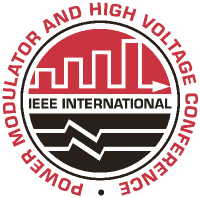Speaker
Foivos Antoulinakis
(University of Michigan, Ann Arbor, MI 48109, USA)
Description
Joule heating limits the operation of most current carrying components and devices, especially in nanoscale circuits such as carbon nanofiber based field emitters, graphene electronics, and nanolasers [1]. For many materials of interest it is important to consider the temperature dependence of the thermal and electrical conductivities when calculating the effects of Joule heating. We examine the effects of linear temperature dependence of the electrical and thermal conductivities on the heating of a one-dimensional conductor by solving the coupled non-linear steady state electrical and thermal conduction equations. We find that there are conditions under which no steady state solution exists. In the special case in which the temperature dependence of the electrical conductivity may be neglected, we have obtained explicit expressions for these conditions. The maximum temperature and its location within the conductor are examined for various boundary conditions. We note that the absence of a steady state solution may indicate the possibility of thermal runaway [2].
[1] P. Zhang, Q. Gu, Y. Y. Lau, and Y. Fainman, “Constriction Resistance and Current Crowding in Electrically-pumped Semiconductor Nanolasers with the Presence of Undercut and Sidewall Tilt”, IEEE J. Quantum Electronics, vol. 52, no. 3, p. 2000207, Mar. 2016.
[2] Y. Y. Lau, D. Chernin, P. Zhang, and R. M. Gilgenbach, “A Voltage Scale for Electro-Thermal Runaway”, Proc. of IEEE Pulsed Power and Plasma Science, San Francisco, California, 2013.
Primary author
Foivos Antoulinakis
(University of Michigan, Ann Arbor, MI 48109, USA)
Co-authors
David Chernin
(Leidos, Inc., Reston, VA 20190, USA)
Peng Zhang
(University of Michigan)
Y. Y. Lau
(University of Michigan, Ann Arbor, MI 48109, USA)




